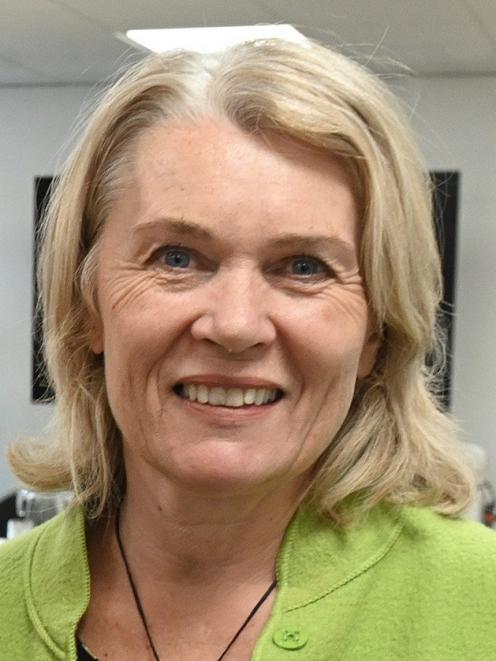
Or Wyndham and Districts Community Rest Home, Peacehaven Village in Invercargill or HealthCare NZ, Invercargill for that matter.

However, those four facilities were among 11 visited by Parliament’s health select committee as part of its inquiry into the aged-care sector.
The committee, which includes Labour Taieri MP Ingrid Leary (her party’s seniors spokeswoman) and Te Anau-raised Labour health spokeswoman Ayesha Verrall, began work on this inquiry, which had a specific focus on neurological cognitive disorders, more than 18 months ago.
While its instigation was a National-New Zealand First coalition requirement, the inquiry report - released this week - reveals a surprising amount of cross-party support for attempting to right the wrongs in this area.
The reason why they should do so is patently obvious but often ignored.
About 17% of the population are 65, or older. That figure is projected to hit 20% in three years’ time. In 2040 a quarter of us - 1.3 million people - will be aged 65 or over.
Everyone has different health needs and their bodies and minds will deteriorate at different rates, but given increasing life expectancy that equates to billions more that will be required for dementia drugs, geriatricians and geriatric nurses, and all the infrastructure that an expanding cohort of elderly people - and especially the cognitively impaired elderly - will need.

That is the tip of the iceberg: an estimated 50%-80% of people with dementia never receive a formal diagnosis, but still have similar needs.
Specialists in this field have been demanding for decades that successive governments needed to have started making preparations then, let alone now, for the ‘‘grey wave’’ but expedient politics has long trumped expected need: the unlikely to never be resolved debate about raising the age for national superannuation is but one of many examples of this.
New Zealand First, famously, draws much of its support from those of advanced years, and it should be commended for getting this somewhat belated inquiry under way.
Likewise, credit to the committee members who have come up with 14 achievable recommendations rather than wished for the sun, the moon and the stars.
Notably, it recommended the government consider a range of funding and financing tools to enable the development of more dementia beds.
About 80% of all aged-care beds are held by the private sector (almost all the rest are provided by charities) and both sectors suffer from the fact that on current funding levels dementia beds, which require intensive staffing, are not profitable for providers.
More broadly, it also recommended the government consider a range of funding and financing tools for new aged residential care beds, ‘‘including but not limited to capital grants, depreciation incentives, consent relief, anchor contracts, Infrastructure Funding and Financing Act 2020, and National Infrastructure Funding and Financing Limited financing’’.
Given that a recent report on the sector predicted a shortfall of 12,000 beds in the aged-care sector by 2032, there is more than a little need for some urgency on that one.
That said, there is a philosophical divide which will need to be bridged here. Some MPs will place a greater reliance on means testing and private sector service provision; others will prefer universality and public health provision.
Also of interest, given the high-profile row about pay equity earlier this year, is the committee’s agreement that government needed to continue to work to reduce gender-based pay discrimination in the aged-care sector.
This is a double-edged issue. Historic pay discrimination in a workforce which is predominantly female remains a genuine issue, but so is staff - especially nurses - being poached by private and public sector employers offering better wages.
The theory was that a decent pay equity settlement would boost the wages of aged-care workers to the point where staff retention was less of an issue; in reality, not so much.
Some recommendations are more practical, such as allowing aged-care providers to carry out needs assessments. At the moment specialist assessors are the only people who can carry out the mandatory task of establishing what level of cognitive impairment - and hence what level of care, and of funding, a person receives.
Assessors are thin on the ground: the report notes that for Southland an assessor travels from Christchurch.
‘‘The time lag means that patients with dementia and psychogeriatric needs are often placed in inappropriate settings, without necessary security, and are a threat to themselves and others.’’
The amount of time saved and stress averted - for patients and families - that a change which recognises the rurality of areas like the South, should be significant.
So is the recommendation that consideration be given to setting up a regular respite care programme. Many elderly with cognitive impairment are cared for by spouses or relatives, often by desire rather than choice, and the aged-care system would quickly fall apart without that. Giving those carers an occasional break is surely the least we can do?
So, what happens next? The government has 60 working days to respond to the report’s recommendations, in writing, and a parliamentary debate will follow.
Unless the government acts with urgency, any legislative response will likely overlap the election. Truly bipartisan reforms would likely survive to be adopted by the next government, should it change.
However, if the government decides to make this a political issue, there is enough of a philosophical divide to make it an election issue.
Arguably, so it should be - care for our seniors should be a priority - but a political row will only delay progress which should already be long under way.












